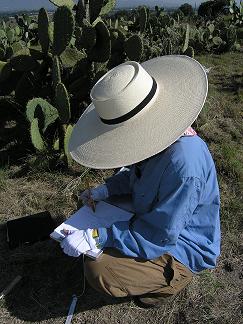In Memory of New Orleans, part I, Absinthe
Let's start with absinthe. I was born in New Orleans and lived in the area till I was 15.5, roughly half my life so far so I was at least tangentially aware of this green stuff called absinthe due to its production in belle epoque New Orleans. I took no direct interest in the stuff at the time because I was not really all that interested in alcohol. I was raised Southern Baptist and although I am officially now an apostate it still marks me in some ways. I first got interested in the green fairy this past summer when I was visiting the Delaware art museum and saw this poster:

The woman's demure black dress, the man's aristocratic leer complete with monocle and mustache...there's just so much to appreciate. Naturally I had to find out more about the substance that was advertised as so debauched. So, I checked out a few books from the library, like Phil Baker's The Book of Absinthe: A Cultural History and Barnaby Conrad's Absinthe: History in a Bottle to get started.
There was a lot of repetition but still, some interesting reading for sure. For starters, I can see that nihilistic determined self-destruction was really practiced as a high art form by much of the literati and bohemian art crowd in Paris and London. Absinthe, for all it's debauched reputation was really the least of it...absinthe got the bad rap for being, well, kinda cool. For one thing, it's taste was kind of antiseptic and there was also the way it was served with ice water slowly added to achieve the right louche (cloudy) color. Here's a great webpage with some more details: What is absinthe?
What I found more interesting was the intersection of ideas that people had about absinthe as a source of depravity and excess and the onset of world-wide prohibitions, not just of absinthe, but of alcohol. I had always assumed (through ignorance, obviously) that the prohibition of the USA was somewhat unique. Not so. Alcoholism and abuse was seen as a major problem in turn of the century Europe as well and they banned many distilled liquors in France and Switzerland. It could well be that the technology of distillation, which had gotten so refined, had created serious hard to handle stuff for consumption by a population used to drinking much milder stuff (like wine). After a few bad grape harvests, absinthe (and other liquors) actually became cheaper than wine and so became the mind-altering substance of choice for working class poor. I guess governments can overlook a few rich arty types over-doing it and dying in "circumstances of unrelieved horror" but not the working stiffs. At least, that's the theory. Of course, we all know what a bonus the prohibition was for organized crime. And it didn't stop usage (though it certainly brought absinthe production to a halt in some parts of the world)...oh well, seemed like a good idea at the time.
It certainly makes for an interesting aside into current drug abuse theories and practice. These little prohibitions seem to carry more ill side-effects than the abuse of the technology itself though of course with ever stronger distillations (of alcohol and drugs in general) it seems that governments will always try to control their availibility and use. They seem to go through fads as well. Apparently a certain Vin Mariani (wine with cocaine) was quite popular with Queen Victoria and the Pope (at the time) and complex societies always seem to use and abuse stimulants. I think they need 'em. Well, I have my own soft drug addictions like caffeine, chocolate, tea (wars have been fought over them!) that have their physical effects as well.
Even now, absinthe is banned in the USA. I am curious about it, but I think I couldn't bring myself to drink it...after all the hype, what could a taste do other than disappoint me?
Although in memory of New Orleans, I am very tempted to buy this historical recreation, Nouvelle Orleans, by Ted Breaux. Of course, I wouldn't drink it, but I do believe that I would clutch it quite happily.



0 Comments:
Post a Comment
<< Home